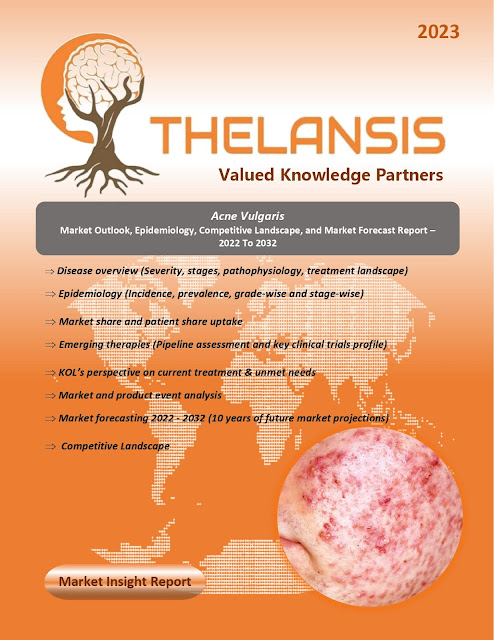Transverse Myelitis – Market Outlook, Epidemiology, Competitive Landscape, and Market Forecast Report – 2021 To 2032
Acute transverse myelitis (TM) is a rare neuro-immune spinal cord disorder that can cause sudden weakness, sensory alterations, and bowel or bladder dysfunction. It usually occurs on its own as a complication of infection; however, it may also be part of a continuum of other neuro-inflammatory disorders. Acute disseminated encephalomyelitis, neuromyelitis optica spectrum disorder, multiple sclerosis, and acute flaccid myelitis are among the conditions covered. TM can occur anywhere along the spinal cord but most commonly affects the thoracic region. The disorder affects both sides of the spinal cord, resulting in bilateral deficiencies. The standard of care and the first-line therapy for treating transverse myelitis is intravenous glucocorticoids. The treatment aims to decrease inflammation and swelling while promoting and enhancing recovery. A differential diagnosis for Transverse myelitis includes any diseases causing myelopathy. The majority of patients with idiopathic transverse myelitis should at least have a partial recovery. This recovery begins within 1 to 3 months and continues to progress with exercise and rehabilitation therapy. Recovery may take years, and there may be some persistent debilitation. This occurs in approximately 40% of cases. A poor prognosis is associated with rapid onset, complete paraplegia, and spinal shock. Most patients will only have TM once. However, with chronic disease, TM may reoccur. The majority of people recover within three months of symptom onset, but it can take up to two years. Patients with transverse myelitis risk developing chronic urinary tract infections, decubitus ulcers, pain, spasticity, major depression, sexual problems, etc.
·
The incidence of transverse myelitis (TM)
ranges between 1 to 8 cases per million population.
Thelansis’s “Transverse Myelitis
Market Outlook, Epidemiology, Competitive
Landscape, and Market Forecast Report – 2021 To 2032" covers disease
overview, epidemiology, drug utilization, prescription share analysis,
competitive landscape, clinical practice, regulatory landscape, patient share,
market uptake, market forecast, and key market insights under the potential Transverse
Myelitis treatment modalities options for eight major markets (USA, Germany,
France, Italy, Spain, UK, Japan, and China).
KOLs insights
of Transverse Myelitis across 8 MM market from the centre of Excellence/
Public/ Private hospitals participated in the study. Insights around current
treatment landscape, epidemiology, clinical characteristics, future treatment
paradigm, and Unmet needs.
Transverse Myelitis Market Forecast Patient
Based Forecast Model (MS. Excel Based Automated Dashboard), which Data Inputs
with sourcing, Market Event, and Product Event, Country specific Forecast
Model, Market uptake and patient share uptake, Attribute Analysis, Analog
Analysis, Disease burden, and pricing scenario, Summary, and Insights.
Thelansis Competitive Intelligence (CI) practice
has been established based on a deep understanding of the pharma/biotech
business environment to provide an optimized support system to all levels of
the decision-making process. It enables business leaders in forward-thinking
and proactive decision-making. Thelansis supports scientific and commercial
teams in seamless CI support by creating an AI/ ML-based technology-driven
platform that manages the data flow from primary and secondary sources.




Comments
Post a Comment